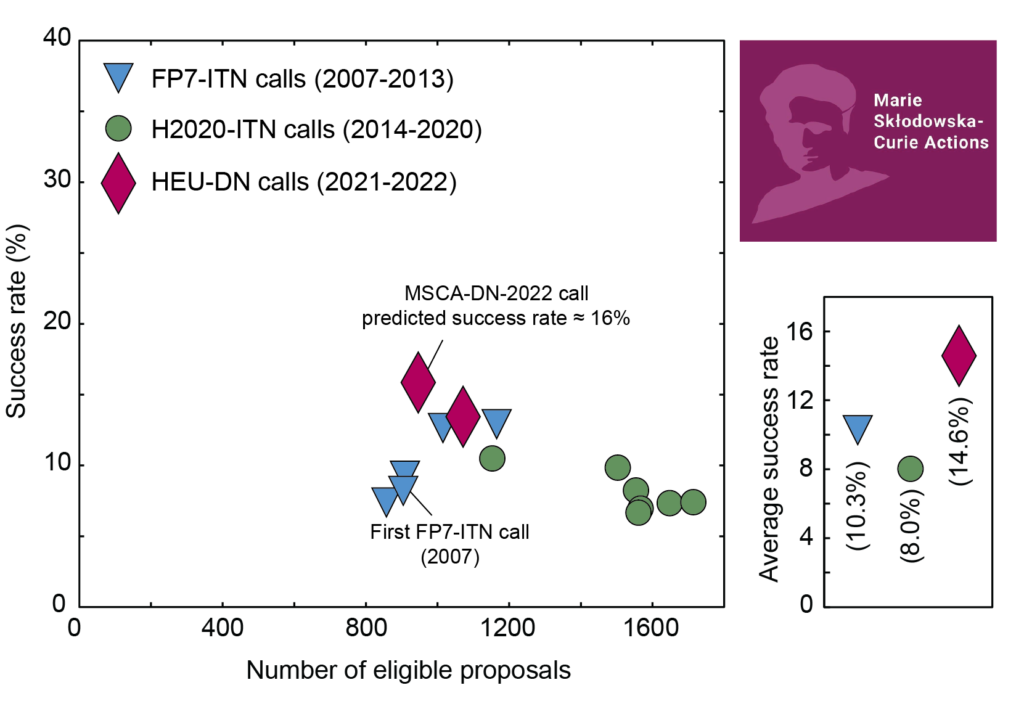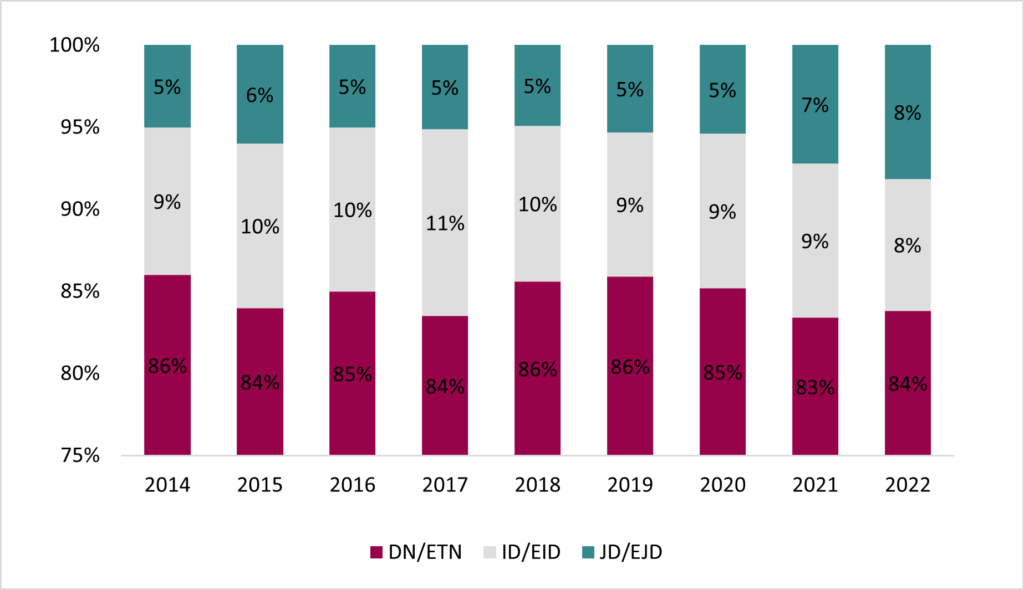Latest MSCA-DN deadline confirms higher success rate in Horizon Europe
6th December 2022 at 4:54 pm
The second submission deadline for the MSCA Doctoral Networks (MSCA-DNs) within Horizon Europe was on 15 November 2022. We discussed the major changes to this funding scheme under Horizon Europe compared to Horizon 2020 and how they might have increased the success rate in a previous blog post.

This year’s call confirms the general trend towards lower numbers of submitted proposals: A total of 946 proposals were submitted including 76 Industrial Doctorates (ID) and 77 Joint Doctorates (JD). Since the EU is expected to fund >150 projects through this call, we expect the success rate to be around 16% (Fig. 1). This significant increase in success rate results in part from the lower number of funded researcher months in standard DNs under Horizon Europe (see previous blog post for details) together with the lower number of submitted proposals. The latter aspect might be a side effect of the reduced number of funded researcher months, making DN proposals less attractive, especially to larger consortia.
By keeping the maximum number of researcher months at 540 (i.e., 15 PhD candidates) for IDs and JDs, the European Commission attempted to promote these schemes under Horizon Europe. We do observe a higher percentage of JDs in the two Horizon Europe calls compared to the H2020 calls (7 and 8% under Horizon Europe vs. 5% under H2020) but a slightly lower percentage of IDs (8 and 9% under Horizon Europe and 9-11% under H2020) (see Fig. 2).

Results expected in April 2023
As stated on the MSCA webpage, the evaluation results will be communicated in April 2023 and the first successful DNs are expected to start in September 2023.
One key change compared to Horizon 2020 is that IDs and JDs will be evaluated in the same eight thematic panels – ranging from Chemistry and Engineering to Life sciences – as standard DNs. This makes it difficult to predict the number of IDs and JDs to be funded. However, our analysis of the results in the first Horizon Europe MSCA-DN call showed that the ID scheme had a success rate close to 18%, about five percentage points more than the standard DN and the JD.
According to the pre-published MSCA Work Programme, the next deadline is on 28 November 2023. As a reminder, applications that received a score below 80 the previous year will not be eligible for resubmission.
accelopment services from FP7 to Horizon Europe for MSCA-DN
We have long-standing experience from more than 20 ITNs funded under FP7 and Horizon 2020 and four in the first Horizon Europe DN call with BREAKthrough, MITGEST, SYNSENSO and the ID MIRELAI. Typically, our first role is to support proposal writing and execute the grant preparations with the European Commission (EC). During the project implementation, we then work as an Associated Partner in the consortium, assisting in project management tasks, coordinating the communication and dissemination activities and contributing to the training of the doctoral candidates with our transferable skills training programme, which has become an integral part of many innovative doctoral networks.
If you want to be notified as soon as we publish any MSCA-DN-related news, you can subscribe to our blog posts and stay updated about the latest developments, trends and results. If you are looking for individualised advice on your best funding opportunities and success chances, please contact us.

Jacqueline Strehler
Research & Innovation Project Manager
